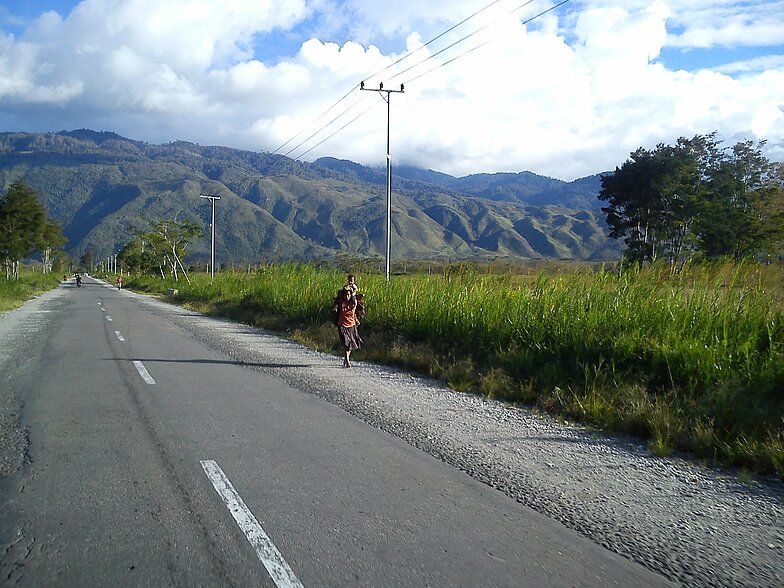Debating Extraction: Plural Visions of Infrastructure in Papua, Indonesia
This research examines debates around possibilities of land-use change in a context where development discourse increasingly prioritizes investments in new infrastructures. It documents how local debates about development respond to the possibility of expanding extractive economies in a highland frontier of the world’s largest Muslim-majority country. It focuses on Indonesia’s easternmost region of Papua (also known as West Papua), where government agencies, private companies, and international funding agencies are channeling investments as part of an Autonomy program that the World Bank has sponsored to resolve conflict between the Indonesian state and the West Papuan independence movement. Papua is a major site of resource extraction operations for international and domestic capital, hosting the world’s most important gold and copper mine (controlled by a US mining company). Critics often frame the new infrastructure agenda as a means to increase corporations’ access to the region’s mineral deposits. Still, the promise of increased infrastructural connectivity—especially new roads—is broadly appealing among indigenous landholders in Papua’s Central Highlands. This predominantly Christian and peasant population has experienced marginalization in relation to the commercial activities of mobile newcomers from other regions of Indonesia. Economic relations among these groups have been objects of critique and sporadic contestation.
The previous research project, upon which this new project builds, examined debate and conflict under Autonomy’s establishment of distribution programs that evoked the possibility of an indigenous livelihood shift away from agrarian production. Autonomy’s more recent agenda of ‘infrastructure-for-development’, and the suspicion that mining interests operate in its background, intensify debates about what constitute just livelihood relations among people and land. What kind of politics emerges when infrastructure expansion brings extractive agendas and mobility aspirations into friction with debates about just human-environment relations? How do indigenous political actors and regional power blocs define notions of just development in relation to the promise of infrastructural connectivity? The project will emphasize the production of norms and knowledge of environmental justice among populations residing in territories that have been marked as potential sites of value extraction.
